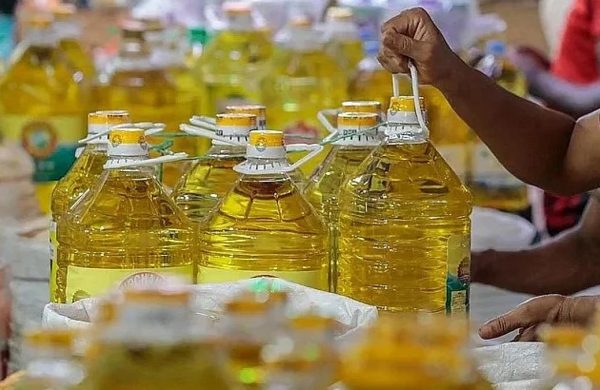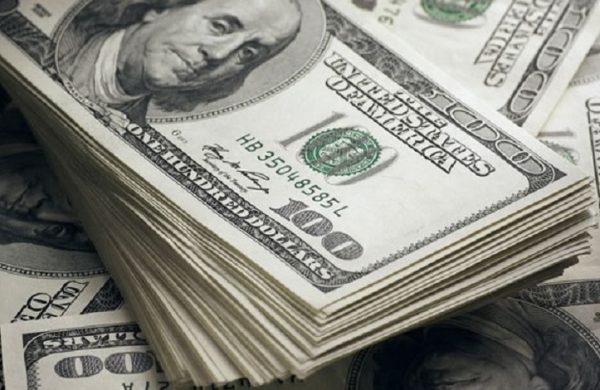Are traders earning Tk12 profit per litre of soybean oil?
- Update Time : Friday, April 25, 2025

TDS Desk:
In the last three years, the price of soybean oil in the international market has dropped to its lowest level. However, in the domestic market in Bangladesh, the same oil is being sold at comparatively higher prices.
Using various excuses, soybean oil refining mill owners are making a profit of Tk12 per litre, which is deemed unusual. Traders claim that due to the devaluation of the Taka against the Dollar and the lack of timely support from banks, consumers in the country are not benefitting from the fall in global prices.
According to the regular monthly reports from the World Bank, the prices of soybean, palm oil and soybean seeds have been on a downward trend since 2022. An average price of $1,040 was observed from January to March. Prices have started to fall further in April.
The World Bank’s report shows a similar trend for palm oil. In the first three months of 2025, the average price was $1,068. However, prices have again started to decline in April.
Data indicate that the price of soybean seeds has dropped the most. In the first three months of 2025, the price declined further to an average of $408 per ton. Up to 40% edible oil can be extracted from crushed soybean seeds.
GLOBAL PRICES DOWN, LOCAL COSTS UP
Meanwhile, a review of the customs-assessed value shows that in the last six months, the average assessed value of crude edible oil imported through Chittagong Customs House via Chittagong Port was Tk136 per kg.
The maximum transportation and refining cost for crude soybean oil is Tk15 to Tk20 per kg. Including duties, taxes, and VAT of another Tk21, the total production cost per litre of edible oil stands at Tk177.
Amid pressure from traders, the government increased the price by Tk14 per litre and set a new price of Tk189 per litre for soybean oil. According to this calculation, traders are making at least Tk12 profit per litre, which is highly unusual, according to experts concerned.
An analysis of price fluctuation data from the Ministry of Commerce reveals that the price of edible oil fluctuated four to five times in 2024. In January 2024, after the 12th parliamentary election, importers raised the price of edible oil without any consultation with the government.
At the time, the price of bottled soybean oil was increased by Tk4 to Tk173 per litre. On March 1, the price was reduced by Tk10, with the new price set at Tk163 per litre. Then on April 18 of that year, the price of bottled soybean oil was increased again from Tk163 to Tk167 per litre.
At the same time, the price of loose soybean oil was reduced from Tk149 to Tk147 per litre. Later, on December 9, the price of bottled soybean oil was raised by Tk8 to Tk175 per litre. Additionally, the price of loose soybean oil was fixed at Tk157 per litre.
This was followed by the government providing duty exemptions on imports in two phases. After the expiry of this exemption period on March 31 this year, the price of soybean oil was increased again by Tk14 per litre.
According to sources at the Ministry of Commerce and the Ministry of Industries, even though the demand for edible oil is increasing, the number of edible oil refining companies is on a decline.
Currently, the market is being controlled by five major industrial groups. Price hikes are made based on their demands. These groups hold the mechanism of market control.
The Consumers Association of Bangladesh (CAB) claims that these five companies control 70% of imported edible oil. These companies are Meghna Group, City Group, TK Group, Bangladesh Edible Oil Limited and Smile Food Products.
According to data from the National Board of Revenue (NBR), approximately 2.507 million tons of soybean and palm oil were imported in 2023. In 2024, the import volume increased to around 3.2 million tons of edible oil.
The annual demand for edible oil in the country is currently around 3 million tons. The Bangladesh Vegetable Oil Refiners and Vanaspati Manufacturers Association reports that there are 22 refineries in the country. Among them, five to six companies meet most of the demand for edible oil.
According to shipping agents, over the last three and a half months, 23 ships have arrived at Chittagong Port carrying crude soybean oil, palm oil and soybean seeds. These ships brought in 307,285 tons of crude soybean and palm oil. In addition, 227,000 tons of soybean seeds were imported.
In 2025, the TK Group brought in the highest volume of edible oil. In February, it imported around 60,000 tons of crude soybean and palm oil on four ships. In March, it again led in imports, bringing around 80,000 tons on five ships. During the same month, the Meghna Group imported around 65,000 tons.
However, from March 19 to April 2, no ships carrying edible oil arrived at Chittagong Port. Sources claim that after receiving confirmation that the price would increase, importers resumed importing edible oil from April 2.
Between April 2 and April 10, seven ships carrying soybean, palm oil and soybean seeds anchored at Chittagong Port. Most of these imported edible oils were purchased in 2024, when the average global price was at its lowest.
When asked about the issue, Amitabh Chakraborty, director of the City Group, said “The local market price is determined by adjusting global market prices and production costs. There is no scope for excess profit.”















